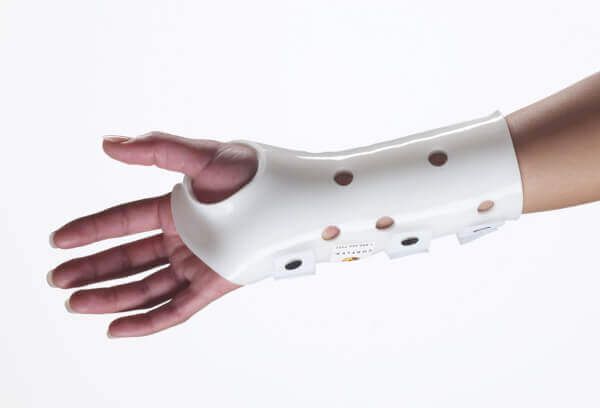Carpal Tunnel Causes
From Dr. Z - Carpal tunnel syndrome specialist
The Primary Carpal Tunnel Causes
"How on earth did I get carpal tunnel?" It's a common question. In fact, there are two topics patients are always curious about regarding carpal tunnel: causes and treatment. This article focuses on its causes. You can learn about treatments for this painful and numbing condition here.
Whether or not you'll get carpal tunnel syndrome depends on a few "risk factors". But about half of the time, carpal tunnel appears in patients without any risk factors. It just shows up - and nobody knows why.
But if you have any of the risk factors, chances are better than average you'll get carpal tunnel syndrome. Think of the risk factors as a "predictor" of whether or not you'll see symptoms of this disorder affecting the hand and fingers.
- FIND OUT: do you have carpal tunnel? No strings attached self-test.
Main carpal tunnel causes & risk factors
The hallmark signs of carpal tunnel syndrome include pain, numbness or tingling in your fingers and hand (mostly on the palm side). Sometimes carpal tunnel causes weakness in your grip strength.
Some people say they have "clumsy hands" because they drop things a lot. Usually people have to wake up from a dead sleep to shake out the numbness in their hand or fingers.
If you don’t have carpal tunnel symptoms yet, the following information can help determine your probability of getting it. These carpal tunnel causes & risk factors may increase the likelihood of your getting this disorder.
But don’t despair. Carpal tunnel syndrome can be successfully treated with non-surgical options.
Your job
One of the most well known carpal tunnel causes is your occupation. Working in certain high risk jobs can lead to getting this disorder more than other jobs. In fact, any occupation that exposes your hands to constant, repetitive, and forceful hand or finger movement greatly increases the chances of getting carpal tunnel.
These occupations and their hand activities don’t directly produce carpal tunnel syndrome. But they allow the condition to develop. (It's like being obese doesn't cause diabetes; it just allows that metabolic condition to develop.)
The problem multiplies when using vibrating hand tools. People who use vibrating tools every day are over 8 times more likely to get carpal tunnel syndrome.
Other high risk jobs include:
- Truck drivers
- Assembly line workers
- Fine artists
- Clerical workers
- Transcriptionists
- Meat packers
- Computer programmers/graphic designers
- Carpenters
- Hairdressers
- Farmers
- Dental hygienists
- Janitors
- Musicians
These workers should take special precautions. The jobs require focused and direct measures toward carpal tunnel prevention before symptoms actually appear or even worsen.
Your sex
About 70% of carpal tunnel syndrome cases occur in women. But many scientists believe the incidence of carpal tunnel in women is much higher.
The highest frequency is seen in women of menopausal age who also are obese, smokers or diabetic. And middle-aged females have a much higher risk for carpal tunnel than middle-aged males.
Exactly why women get carpal tunnel syndrome more readily than men is currently unknown.
Obesity
It might surprise you to learn that you could get carpal tunnel syndrome simply by being obese. Your carpal tunnel doctor probably warned you that obesity is a major risk factor for getting this condition.
What's fascinating is that if you're obese, losing weight can actually reverse carpal tunnel symptoms. For example, studies show a 10 month aerobic exercise program to drop weight can also greatly improve nerve function and reduce symptoms.
The reason for reversing carpal tunnel with weight loss is two-fold:
- Losing weight will improved circulation.
- Leaner people metabolize more oxygen for their weight.
These processes help heal the the damaged wrist area causing carpal tunnel. As a result, symptoms greatly decline.
Additionally, diabetics tend to be more obese. So being diabetic and obese amplifies the risk of getting carpal tunnel syndrome.
Poor health
Poor health contributes to getting carpal tunnel & causes it to appear when seemingly everything else looks fine. For instance, you may be vitamin deficient. We know that vitamin C deficiency can increase the chances of developing carpal tunnel syndrome.
That’s why doctors advise taking vitamin C as a supplement for those with active carpal tunnel symptoms. However, nobody understands its relationship to the disorder quite yet.
Other major chronic health factors contributing to the risk of getting carpal tunnel syndrome include:
Family history
There’s no question that genes predispose you to getting carpal tunnel syndrome. This hereditary factor causes changes in the biochemistry inside your carpal tunnel which leads to the condition.
Knowing this is one of the main carpal tunnel causes, make sure to survey your family history. If a parent or sibling has or had carpal tunnel syndrome, it greatly increases the chances you'll get it, too. Exactly how your genes determine if you get this disorder is currently unknown.
Personality
Psychological surveys show carpal tunnel patients usually are somewhat emotionally frustrated. They tend to express more anxiety. Frequently, they are unable to attain what they desire in life. For instance, they crave a happy home life, a brand new home, another car or a different job.
Stress is another factor. Having high emotional stress can increase your chances of developing carpal tunnel syndrome. But this more likely is due to the complex nature of mood, motivation, and even seating posture (e.g., slouching or slumping).
Other psychological studies show remarkable results after patients have psychotherapy. With removal of psychological barriers, carpal tunnel symptoms tend to clear up. Exactly why the probability of getting carpal tunnel syndrome increases with having psychological barriers is a mystery.
Small body frame
People (especially women) who have a small body frame are more prone to developing carpal tunnel syndrome than larger people. The reason for this association is crowding within the wrist joint.
A smaller body frame usually is associated with more slender limbs. And when the wrists are especially thin, the structures within are crowded and cramped. Any cramping of the median nerve can cause compression against it. This, then, produces symptoms of carpal tunnel syndrome.
Wrist Fractures
You fractured a wrist. Will you get carpal tunnel as a result? In fact, your chances more than quadruple.
The anatomy of the wrist joint makes the median nerve (deep inside, between the bones) vulnerable to injury when there’s wrist trauma. Trauma can drastically alter the wrist’s delicate anatomy. As a result, the median nerve can undergo compression. And this compression is what causes all of the symptoms of carpal tunnel syndrome.
Wrist fracture is a well-known risk factor for carpal tunnel syndrome. Sometimes the symptoms reverse by themselves after the fracture heals. However, most times they do not.
Conclusion
Several factors contribute to getting carpal tunnel & cause it to develop into a severe disorder of the hand. The probability that you'll get carpal tunnel syndrome increases according to which (and how many) of these risk factors you have. Chief among them is your occupation, and having a family member who has or had this condition. Your overall health is also a major factor to consider.









